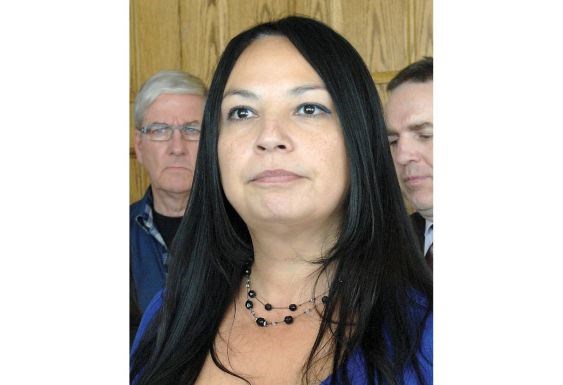The provincial government missed a step when drafting new legislation aimed at keeping more Indigenous children in their communities and out of state care, according to Carrier-Sekani Family Services executive director Mary Teegee.
If passed, the legislation, introduced this week, will mean the Ministry of Children and Family Development will no longer need parents’ consent to reach out to a child’s First Nation and find an alternative to removing the child from his or her home.
Currently, Indigenous children account for 63 per cent of the total number of children in the care of MCFD, while less than 10 per cent of the child population in B.C. is Indigenous.
Teegee called the move a step in the right direction but noted it was done without consulting with agencies like hers.
“It was a missed opportunity,” she said Tuesday. “They could’ve included the agency directors. I mean, they’re the ones that are going to be providing the services on the ground to our community members.”
Teegee said implications need to be considered.
“If it’s the chief and council making the decision and the decision leads to the harm of a child, who is liable?” she said.
Additionally, she said there are the ethical concerns around the privacy of an individual. And she said the agencies need the time for their legal team and social workers to review the legislation.
CSFS provides delegated family and child services to 11 First Nations communities in the north central regional. There are 23 such agencies across B.C.
“We get our mandate from chiefs, so we’re representing about 121 chiefs in child and family services, as per the band council resolutions so by not talking to us, you’re missing that whole segment,” Teegee said. “We are the ones who provide the actual services in communities.”
Over the longer term, Teegee would like to see a B.C. Indigenous Child and Family Services Act, “that looks at child well-being through an Indigenous lens.”
In a response, Children and Family Development Minister Karen Conroy said Indigenous communities and leaders have demanded change, as expressed at an emergency meeting called by the federal government in January and through the feedback from families and communities that informed Grand Chief Ed John’s November 2016 report on the issue.
“We’ve heard these demands loud and clear and we are responding to the immediate need to share information, engage Indigenous communities early when a family and child are vulnerable, and seek solutions outside child protection,” Conroy said.
As for consulting agencies like CSFS, Conroy said the legislation amounts to an interim step to respond with the “urgency that is demanded of us” and that the agencies were briefed and feedback was sought.
“We understand that some Indigenous communities would have preferred we consult more before making any changes,” Conroy said. “But others have told us it is time for action, and we agree.”
The legislation, if passed, will be brought into force by regulation at a later date and more in-depth consultation will follow, Conroy said.
On liability, Conroy said the legislation would allow the ministry to refer a child protection report to a community that has child protection laws.
“When that happens, the ministry has no further involvement in the investigation and the Indigenous community agrees to become legally responsible for assessing the report,” she said.
However, the ministry remains responsible, and therefore liable, for ensuring that all decisions under the agreement with the community protect the child’s safety and well being.
On privacy, Conroy said the changes were reviewed by the Information and Privacy Commissioner to make sure they are consistent with protection of privacy legislation.

.png;w=120;h=80;mode=crop)

